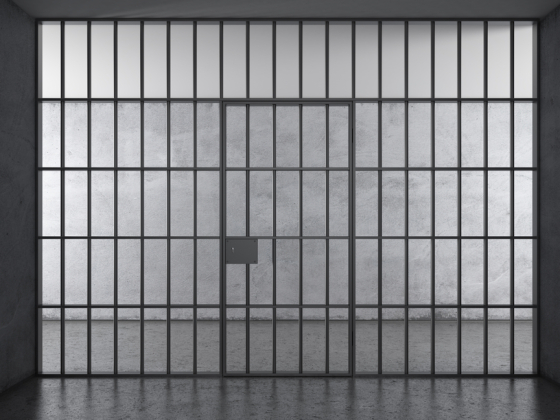More research needed into drugs use in Dutch prisons: Trimbos

 The use of drugs in Dutch jails is ‘worrisome’ and more needs to be done in terms of information provision and care, according to addiction clinic Trimbos, which was financed by the health ministry to research the issue.
The use of drugs in Dutch jails is ‘worrisome’ and more needs to be done in terms of information provision and care, according to addiction clinic Trimbos, which was financed by the health ministry to research the issue.
The research focused on the Ter Apel prison in Groningen, which has a population of some 290 inmates, all of whom are foreign nationals. The prison was chosen because it is open about drugs use within its walls, unlike others, Trimbos said.
The Netherlands has a total of 29 prisons and around 30,000 inmates.
In particular, the research highlights the use of synthetic cannabinoids (SCRAs) within the prison, which are smuggled in by impregnating letter paper with the liquid containing the drug.
SCRAs have been in use at prisons abroad for some time and there are indications it is widely used in Dutch jails, Trimbos said. This is because it is more difficult to trace than more traditional drugs such as cannabis or cocaine.
The effect of the drug is like that of THC, the active ingredient in cannabis, but this can widely greatly and in extreme cases it can be life-threatening, Trimbos said.
The research, based on interviews and questionnaires involving prison workers and inmates found that cannabis and alcohol were the most common drugs, followed by SCRAs and prescription drugs such as painkillers.
The researchers also assessed the results of 8,643 urine tests carried out on prisoners last year. In total, 181 samples tested positive for cannabis, 31 for methadone and 11 for opiates. Benzodiazepines were found in 116 samples but SCRAs were not found in any.
Little is currently being done to research drugs use in Dutch prisons, with strategy focused on stopping drugs getting into jails rather than on their use, Trimbos said.
The survey used for the Ter Apel research should be now expanded to other penitentiaries in the Netherlands to get a better overall picture.
Thank you for donating to DutchNews.nl.
We could not provide the Dutch News service, and keep it free of charge, without the generous support of our readers. Your donations allow us to report on issues you tell us matter, and provide you with a summary of the most important Dutch news each day.
Make a donation